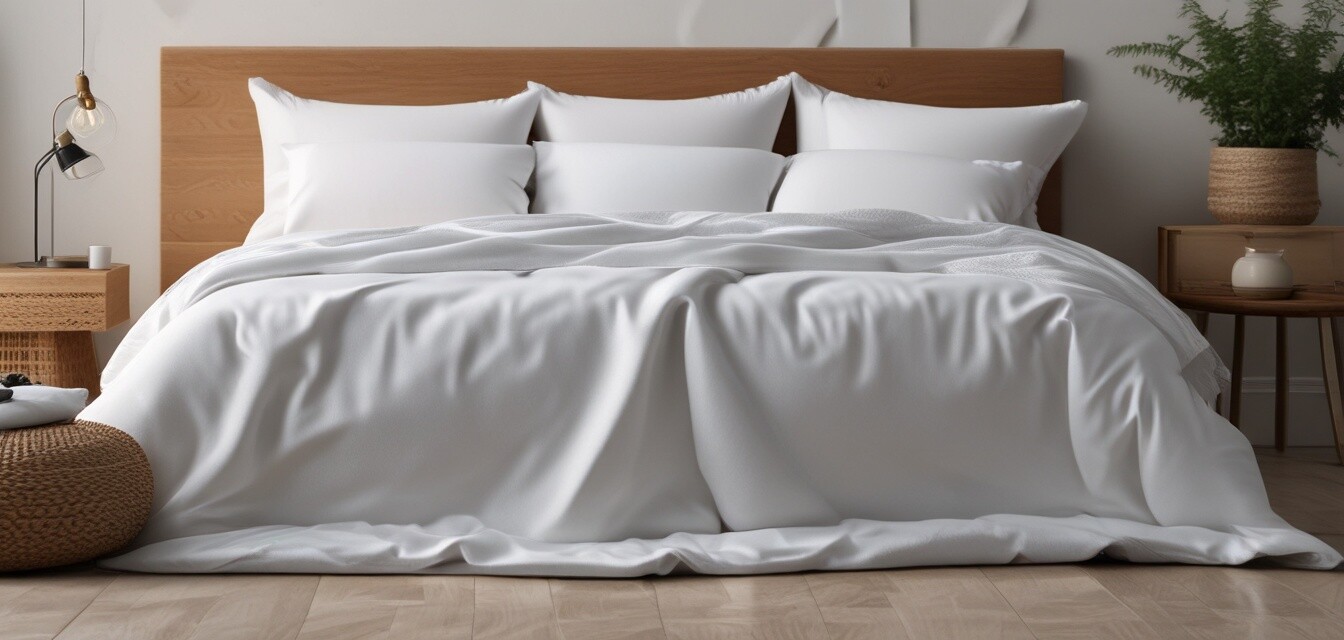
Comparing Allergy-Proof Bedding Products
Key Takeaways
- Allergy-proof bedding products help reduce allergens such as dust mites, pet dander, and pollen.
- Understanding the materials and features can help you choose the right product for your needs.
- Quality matters: look for waterproof and hypoallergenic features for optimal protection.
- Different products serve specific purposes; mattress protectors vs duvet covers can affect how you manage allergies.
When it comes to managing seasonal allergies, the bedroom can be a battleground. Dust mites, pet dander, pollen, and other allergens often find their way into our bedding, exacerbating allergy symptoms and discomfort. By utilizing allergy-proof bedding products, you can create a safer sleeping environment. This article will compare various allergy-proof bedding products to help you determine which ones are most effective for reducing allergens in your bedroom.
Types of Allergy-Proof Bedding Products
Before diving into specific products, it's essential to understand the types of allergy-proof bedding available:
- Mattress Protectors: These covers shield your mattress from allergens and liquids.
- Mattress Encasements: A more comprehensive solution that covers all sides of the mattress, preventing dust mites and allergens from entering.
- Duvet Protectors: These provide a barrier for your duvet, keeping allergens at bay while maintaining comfort.
Comparison Table of Allergy-Proof Bedding Products
| Product | Type | Key Features | Link |
|---|---|---|---|
 SureGuard Queen Size Mattress Protector
SureGuard Queen Size Mattress Protector
|
Mattress Protector |
|
View Product |
 HOSPITOLOGY PRODUCTS Mattress Encasement
HOSPITOLOGY PRODUCTS Mattress Encasement
|
Mattress Encasement |
|
View Product |
 Allersoft Cotton Dust Protector
Allersoft Cotton Dust Protector
|
Duvet Protector |
|
View Product |
Benefits of Allergy-Proof Bedding
Investing in allergy-proof bedding can significantly improve your quality of life. Here are some benefits to consider:
- Reduced Allergens: Keeps dust mites and allergens at bay.
- Improved Sleep Quality: Less irritation and discomfort may lead to better rest.
- Easy Maintenance: Many products are machine washable and designed for easy care.
Factors to Consider When Choosing Bedding
When selecting the right allergy-proof bedding for your needs, consider the following factors:
- Material: Opt for breathable fabrics that wick moisture.
- Waterproof Capabilities: Assess whether you need additional protection against spills.
- Hypoallergenic Properties: Ensure the product is certified hypoallergenic for maximum safety.
Pros
- Provides a barrier against allergens.
- Easy to clean and maintain.
- Increases durability of bedding products.
Cons
- Some may find them expensive compared to regular bedding.
- Not all products fit all mattress sizes perfectly.
- Requires consistent washing to maintain effectiveness.
Conclusion
Choosing the right allergy-proof bedding can greatly affect your comfort and health. With a range of options available, understanding which features are most beneficial will lead you to products that meet your specific needs. From mattress protectors to duvet covers, prioritize your health by selecting products designed to minimize allergens in your sleeping environment.
Tips for Beginners
- Start with a mattress protector if you're on a budget.
- Consider layering a duvet protector for additional defense.
- Read product labels carefully to understand materials and care instructions.
For more information on managing allergies, check out our resources on Understanding Seasonal Allergies and Allergy-Prevention Tips!